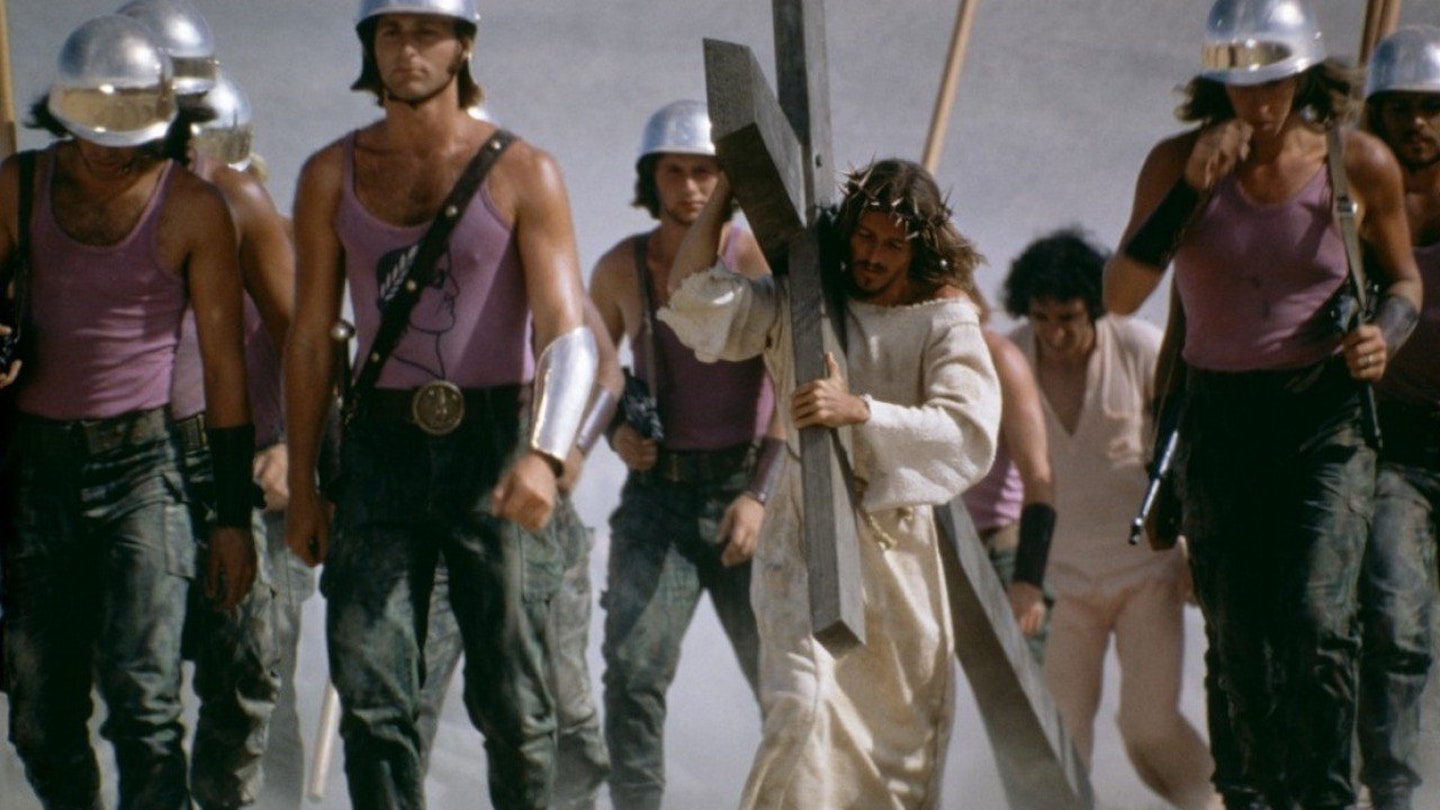It always seems odd to see the name of Melvin Bragg among the credits for this adaptation of Tim Rice and Andrew Lloyd Webber's rock musical. Why would the champion of artistic excellence have agreed to co-script this trivialised opening out of an enduring stage classic?
It's easy to see why director and co-scenarist Norman Jewison would have jumped at the chance to shoot the picture in the Holy Land. But, while Douglas Slocombe's photography is undeniably handsome, Jewison makes too little use of such significant locations. There's no sense of a place being revisited by momentous events and, consequently, the performances are diminished by their disconnection from the setting. Ironically, David Greene would exploit the New York landscape much more effectively in his grimly vibrant take on John-Michael Tebelak and Stephen Schwartz's hippy opera Godspell, which was released in the same year.
Accusations of anti-Semitism greeted the film's depiction of the Jews as the instigators of Christ's Passion. But there was even more wailing and gnashing of teeth over the casting of a black Judas. Yet, Carl Anderson gives easily the picture's strongest performance and rather than playing Iscariot as an opportunist traitor, he essays a devoted fan, who sees the potential dangers of celebrity and laments the fact that Jesus is beginning to believe his own press.
The greater problem lies with Ted Neely, who is woefully miscast in the title role that was originated on stage by Deep Purple's Ian Gillain. He certainly makes a gentle Jesus, particularly alongside Yvonne Elliman's Mary Magdalene. But his falsetto lacks the power to convey the righteous indignation needed for the Temple sequence and the lonely agony of Gethsemane.
Curiously, the soundtrack album stands up quite well. But the film looks very much an artefact of its time and it's difficult to see how it grossed $20 million on the back of largely lukewarm reviews.
